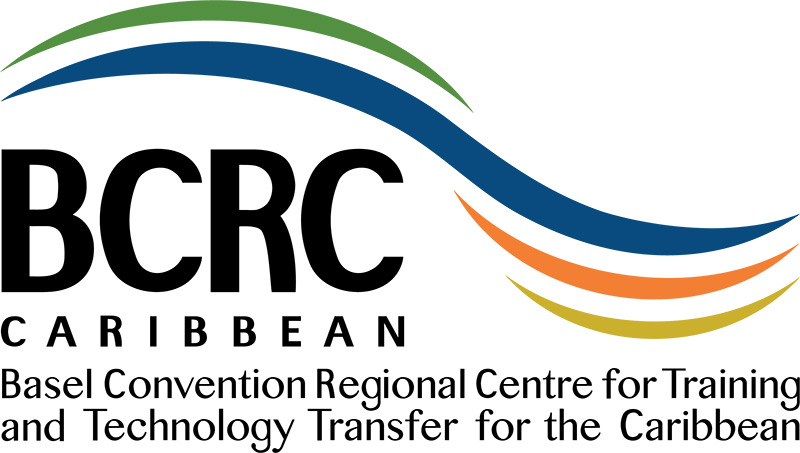About the BCRC-Caribbean
The Basel Convention Regional Centre for Training and Technology Transfer for the Caribbean (BCRC-Caribbean) aims to support Contracting Caribbean Parties to the Basel, Rotterdam, Stockholm and Minamata Conventions with implementing their international obligations to sustainably manage wastes and chemicals in order to protect human health and the environment. Support is provided through technical assistance and capacity building.
Headquartered in Port of Spain, Trinidad and Tobago, the BCRC-Caribbean works with Caribbean governments and other national, regional and international public and private sector stakeholders. The Centre works with its partners to execute national and regional waste and chemicals management projects, facilitate training and information dissemination to Parties, and raise public awareness.
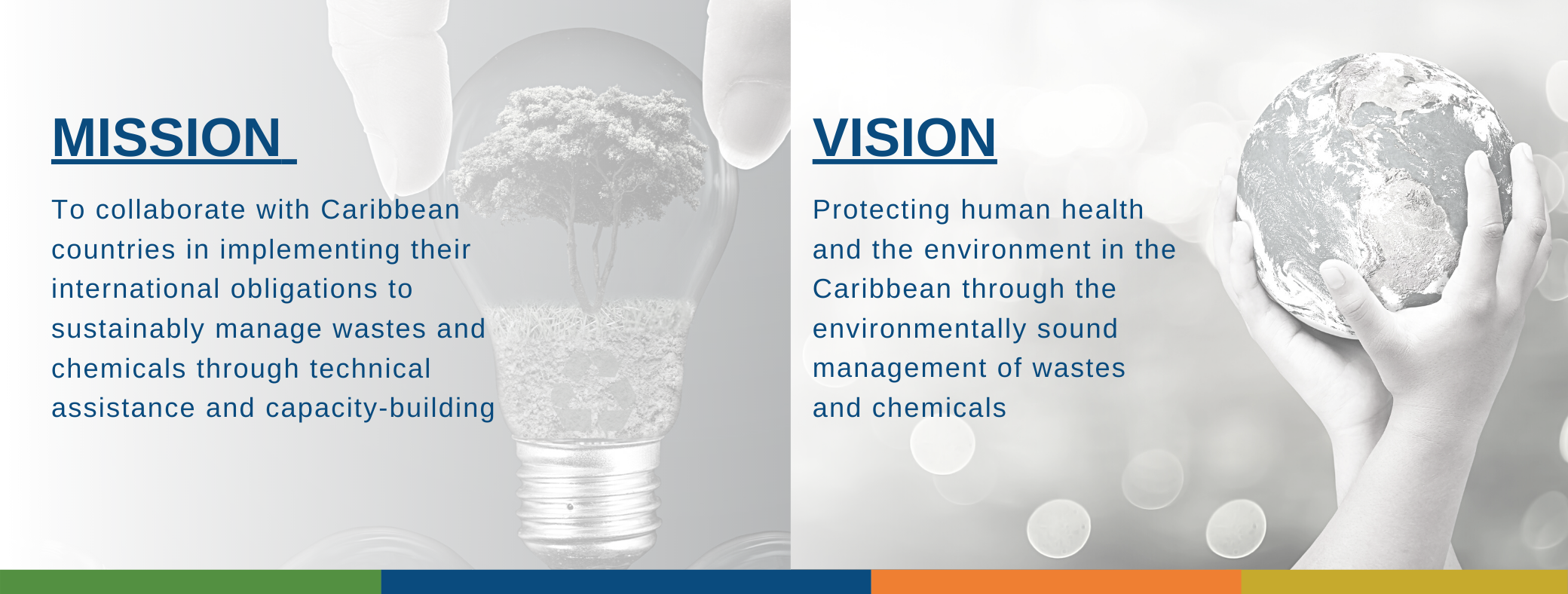
Members
The BCRC-Caribbean has 15 Contracting Member Parties in the Caribbean. These are:
-
- Antigua and Barbuda
- The Commonwealth of the Bahamas
- Barbados
- Belize
- The Republic of Cuba
- The Commonwealth of Dominica
- The Dominican Republic
- Grenada
-
- The Co-operative Republic of Guyana
- Jamaica
- The Federation of Saint Kitts and Nevis
- Saint Lucia
- Saint Vincent and the Grenadines
- The Republic of Suriname
- The Republic of Trinidad and Tobago
Core Functions
In order to ensure that these nations fulfill their obligations to the Basel Convention, the BCRC-Caribbean performs the following core functions which may be subject to periodic review and modification by the Conference of the Parties (COP) to the Basel Convention:
Provision of appropriate and critical training
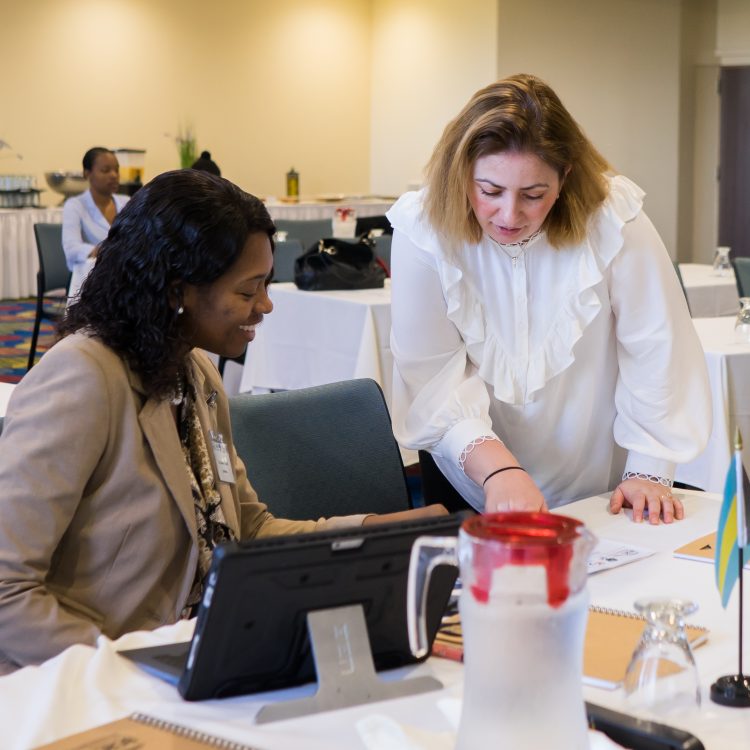
Identification and transfer of environmentally sound technologies for waste management
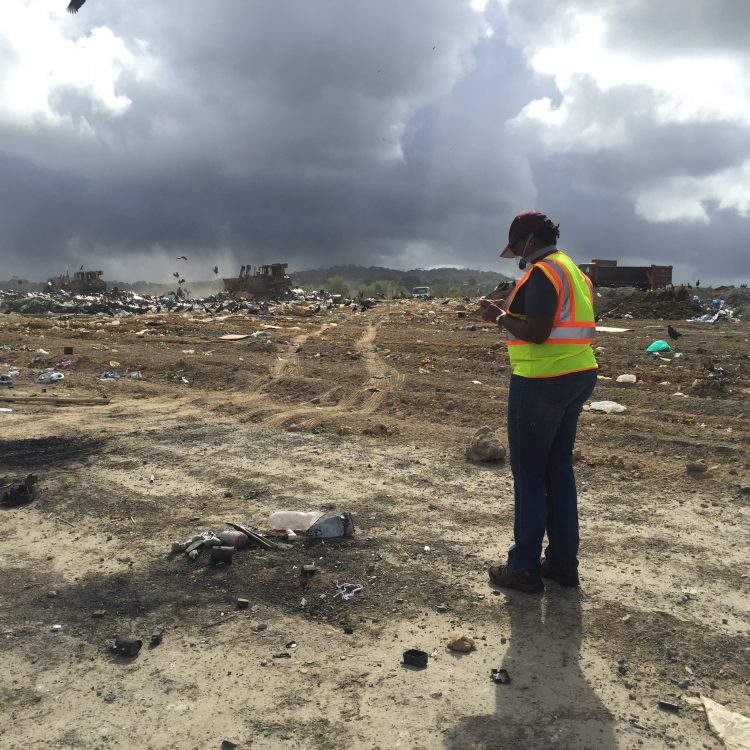
Dissemination of pertinent information to the Parties
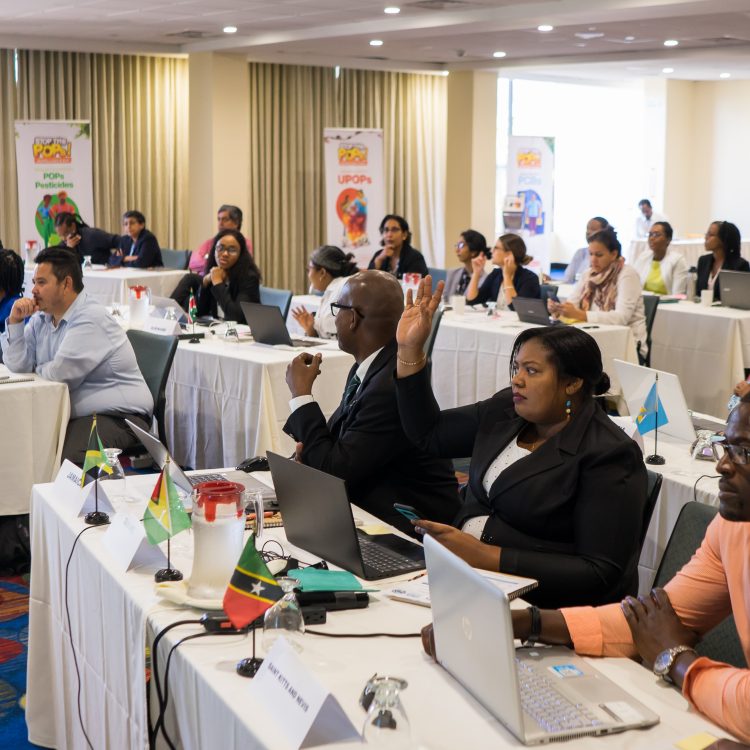
Development and provision of awareness- raising activities of such information and associated issues
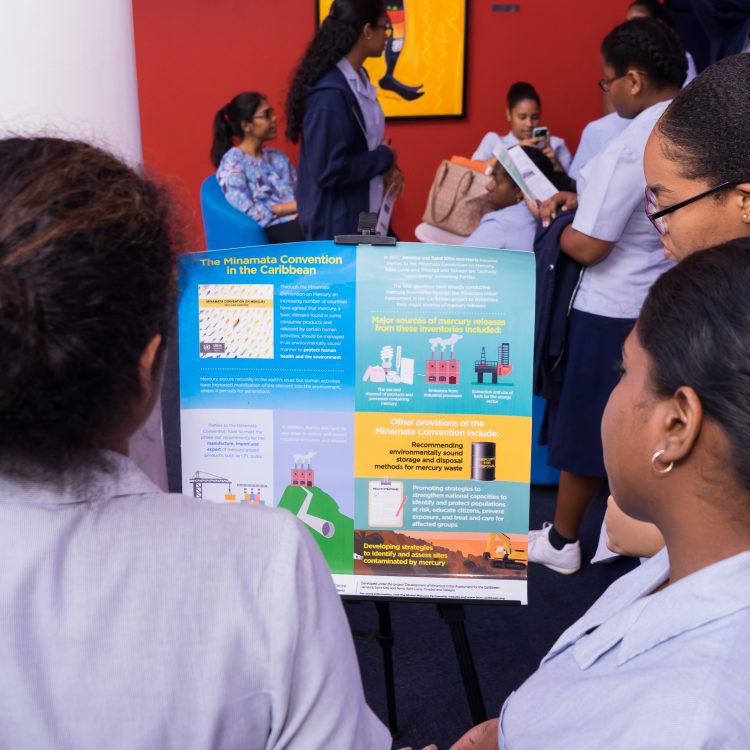
Provision of technical support and expertise to member countries in the form of consultancy services
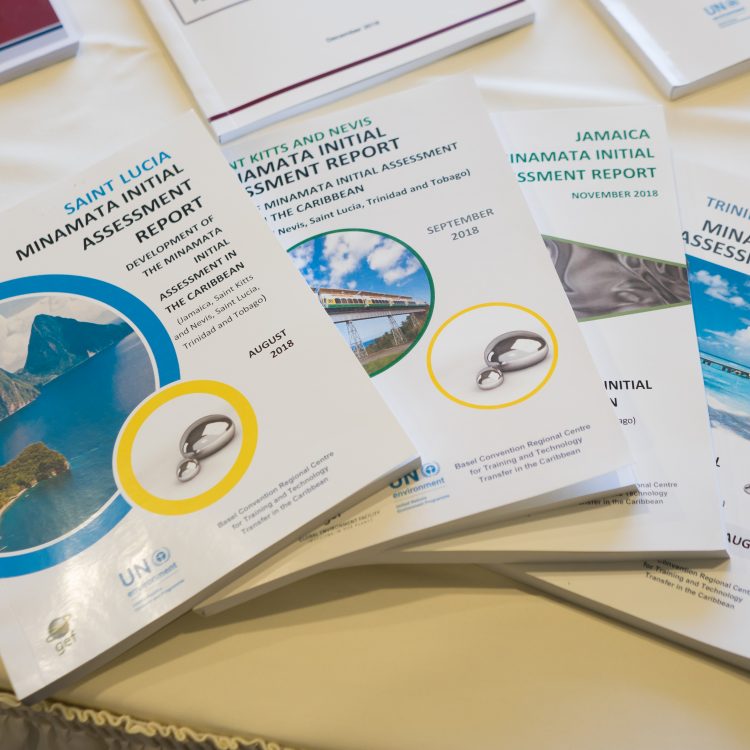
The BCRC-Caribbean is the only Regional Centre and legal entity constituted to assist Parties in the Caribbean region with compliance and implementation of provisions and mandates of the chemicals and waste agenda as defined by the various Multilateral Environmental Agreements (MEAs) acceded to by its member states. In this regard, the knowledge base and service delivery of the BCRC-Caribbean has been expanded to focus on a more holistic approach to chemicals and waste management for the Caribbean region. The increased scope of work is defined in biennial Business Plans developed by the Centre in consultation with its member states. Under this work plan, the BCRC-Caribbean is expected to perform activities aimed at:
-
- Building regional capacity for the environmentally sound management of hazardous and other wastes
- Minimising the regional generation of hazardous and other wastes
- Promoting the ratification and implementation of the BRS Conventions and their instruments.
The BCRC-Caribbean also strives to cooperate with the United Nations and its bodies, in particular the United Nations Environment Programme (UNEP), specialized agencies, other relevant intergovernmental organizations, industry and non-governmental organizations, and, where appropriate, with any other institution, in order to coordinate activities, to develop and implement joint projects related to the provisions of the Basel Convention, and to develop synergies, where appropriate, with other MEAs.
The BCRC-Caribbean performs all these activities, as they pertain to its regional role, under the general guidance of and in coordination with the SBRSC.
Formation of BCRCs and BCCCs
The Basel Convention on the Control of Transboundary Movements of Hazardous Wastes and their Disposal (Basel Convention) is the most comprehensive global legal instrument on the transboundary movement and environmentally sound disposal of hazardous wastes. It was the primary response developed by the international community, under the auspices of the UNEP, subsequent to recognising the need for urgent action on hazardous wastes in the late 1980s. As of January 2021, there are 188 Parties to the Convention, inclusive of economic integration organisations.
Regional/Sub-regional and Coordinating Centres for Training and Technology Transfer (BCRCs and BCCCs) were established under Article 14 of the Convention as the primary mechanism for assisting Parties in their national efforts to comply with and implement the Convention. Further, as a result of the Synergies Decisions adopted by the Conference of the Parties (COP) of the Basel, Rotterdam and Stockholm (BRS) Conventions, since 2008, BCRCs and BCCCs have also been working with Parties to implement the Rotterdam Convention on Prior Informed Consent Procedure for Certain Hazardous Chemicals and Pesticides in International Trade and the Stockholm Convention on Persistent Organic Pollutants. Capacity building and technical assistance are also expected to take place under the recently adopted Minamata Convention on Mercury through the twelve BCRCs and two BCCCs that presently exist globally.
History of the BCRC-Caribbean
Trinidad and Tobago was formally selected as the site for the establishment of a Sub-regional Centre for training and technology transfer for the Caribbean following the third COP to the Basel Convention in 1995. The Sub-regional Centre then began its operations in 1998 at The Caribbean Industrial Research Institute (CARIRI). A Framework Agreement was subsequently developed between the Secretariat of the Basel Convention, now the joint Secretariat for the Basel, Rotterdam and Stockholm Conventions (SBRSC), and the Government of the Republic of Trinidad and Tobago (GoRTT) on the establishment of the Basel Convention Regional Centre for Training and Technology Transfer for the Caribbean (BCRC-Caribbean) after the COP in 2002. The Framework Agreement entered into force on October 29, 2004 during the 7th meeting of the Basel Convention COP. The signing of the Framework Agreement and the subsequent promulgation of local legislation (Act #2 of 2008 of the Laws of the Republic of Trinidad and Tobago) resulted in the separation of the Centre from the operations of CARIRI and credited it with an independent regional status hosted by the GoRTT.
Based on the text under Article II of the Agreement, the Centre is an autonomous, corporate institution with its own legal personality and established by the GoRTT under the laws and regulations of the Republic of Trinidad and Tobago and supported by the line Ministry with responsibility for environmental matters (presently the Ministry of Planning and Development) and in consultation with the SBRSC.

